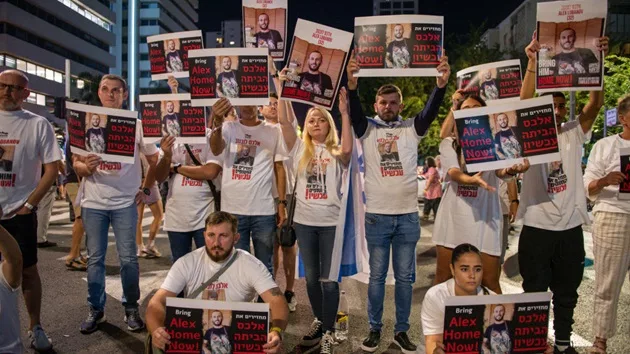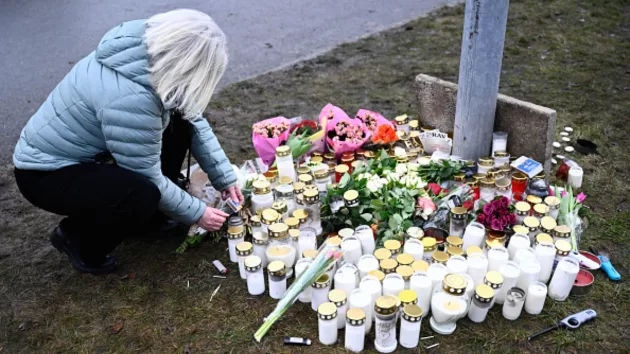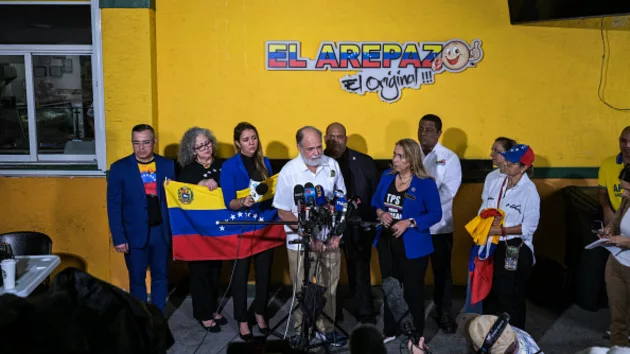(WASHINGTON) — While Biden administration officials are optimistic that negotiators are on the verge of securing an agreement between Israel and Hamas to free dozens of hostages held in Gaza, including Americans — in exchange for an extended pause in the conflict and other concessions — they are also bracing for what they anticipate will be a formidable challenge: establishing a safe passageway so the released prisoners can escape the besieged enclave.
“We could bring some of the hostages home very soon, but I don’t want to get into the details of things because nothing is done until it’s done,” President Joe Biden told reporters on Tuesday about the deal brokered in part by the U.S. and Qatar, talks in which he’s said he’s been “deeply involved.”
But later in the day, National Security Council spokesperson John Kirby did discuss some of the hurdles that lie ahead.
“I think we all need to be humble in terms of the time, the appropriate amount of time it could take to physically move them to safety,” he said, adding the number of hostages involved in any agreement, their location, health, and mobility could all be complicating factors.
The hostages that could be returned as part of the deal include both the elderly and the very young. The Biden administration expects that Abigail Edan, a 3-year-old Israeli-American kidnapped by militants on Oct. 7 after her parents were killed in the surprise terror attack, would be among them, although it is not guaranteed, according to an official familiar with talks.
“With the expectation that some of these people could be in pretty rough shape, I think we all need to, you know, be prepared for the fact that it could take hours if not days to complete their release,” Kirby continued. “Their safety, their security, will be paramount. And if that means going a little slower then my goodness, we’ll go a little slower.”
But the window for any exchange will likely be limited, and one U.S. official with knowledge of the contingency planning currently happening within the administration said moving any freed hostages out of Gaza will need to be done as quickly as possible to ensure the hostages’ safety and facilitate ongoing discussions for the release of others.
While American negotiators are focused on securing the deal at hand, they anticipate its terms will also include the handover of information related to the condition of hostages that are still captive that could inform the administration and Israel’s strategy going forward, the official added.
The deal currently on the table involves Hamas releasing 50 women and children to secure a four- or five-day pause in fighting and the release of Palestinian prisoners held in Israel, according to sources familiar with the talks, who also say that temporary truce could be extended if additional detainees are released.
While Israel will likely amend its military operations to prioritize the safety of the hostages, U.S. officials emphasized throughout the complicated negotiations that Hamas in an unpredictable actor and they have little trust that the group will work in good faith to carry out the terms of any diplomatic arrangement.
“The implementation and execution of an agreement, should one be reached, requires the cooperation of Hamas, a terrorist organization, which is why we’re always hesitant to say too much about what will happen before it has happened,” State Department spokesperson Matthew Miller said on Tuesday.
Hamas has released four hostages to date — Israeli-American mother and daughter Judith Raanan, 59, and Natalie Raanan, 17, who were freed on Oct. 20, as well as two Israeli citizens, Yocheved Lifshitz, 85, and Nurit Cooper, 79, who were returned on Oct. 23.
In both cases, the Red Cross acted as an intermediary, transporting the released women through the Rafah gate, Gaza’s only border crossing with Egypt.
U.S. officials say a larger group of hostages would be processed in a very similar manner, and that while the administration is prepared to offer any needed assistance, the Israeli government will likely be able to adequately address the immediate needs of released hostages.
“Once into Israel, they will most likely be provided immediate medical attention. We have to assume many of them need some kind of medical attention. They’re being held in abhorrent conditions,” Kirby said. “Then I expect every nationality will then begin to work to either repatriate those citizens—certainly to connect them with their families.”
ABC News’ Molly Nagle contributed to this report.
Copyright © 2023, ABC Audio. All rights reserved.






